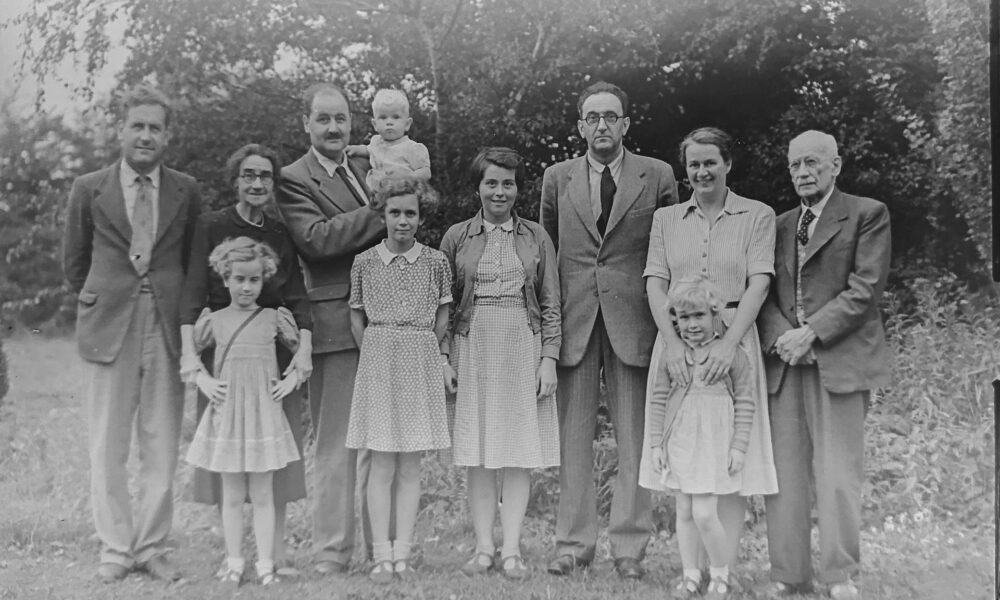
13 A Heart for People – Legacy Builder
Legacy Builders are often owners of family businesses. They think further back into the past and further forward into the future than most. They live and work in their communities. They have weathered personal and business setbacks and losses and know that they are temporary. They are more likely to have value systems similar to the family businesses which built the communities and economy of our nation. They have a heart for people.
Here is the story of one remarkable Legacy Builder.
It was 1995, Malden Mills faced a crisis. This was not the first crisis time that the owners of Malden Mills confronted, but it was the first time since the Revlon decision of 1986. It had suffered and recovered from the Great Recession with the help of its development of Polarfleece. This time, it was a fire that burned three buildings to the ground. Headlines were written and countless business schools and students continue to analyze the decisions of Aaron Feuerstein.
The History:
Malden Mills was incorporated in 1906 when Henry Feuerstein purchased the small mill in Malden, Massachusetts, just outside of Boston. From the beginning, the company was innovative. In 1956, the company moved from Malden to the Arlington Mill complex in Lawrence, Massachusetts about 35 miles north of Boston. While other mills left for cheaper land and labor, the Feuersteins continued their research into synthetic fabrics and expansion in the NorthEast.
As a result of their investments in research and development, Polarfleece debuted in 1979, but not soon enough to stop Malden Mills from being forced into bankruptcy in 1981. However, Polarfleece sales were instrumental in pulling them out of bankruptcy in 1983. Polarfleece, Polartec, and continued research and development allowed Malden Mills to expand into the global market. Things were going well.
On December 11, 1995, during the 70th birthday celebration of Aaron Feuerstein, Henry’s grandson, an explosion sparked a fire that burned 3 of the 9 buildings to the ground. Aaron quickly left to support the workers on the site.
Business: There were essentially three options to consider:
- Leave: Many thought this was the perfect opportunity to leave the restrictive state laws and start new in a more business-friendly environment. Fabric mills had been leaving the Northeast for the less expensive land and labor of the south and other regions for decades. Either moving or rebuilding in a less expensive, more business-friendly environment made financial sense.
- Close the business and keep the insurance payment.
- Stay: Reopen only what was left or also rebuild.
Personal: This was personal for Aaron Feuerstein. His grandfather had purchased the small mill and incorporated it in 1906. He was the third generation of shareholding family members, the owners of Malden Mills. He had worked in the mill since he was a teenager. Malden Mills and the family had been in the small towns in the same area within 30 miles of Boston for nearly 100 years. With nearly 3,000 employees, they were one of the major companies in the area. The area depended on them. This was not just their business, it was their community, their life. This was home.
Decision: Within three days, Aaron Feuerstein announced that they would be:
- re-opening what was functional in January (rather than relocating)
- beginning the rebuilding process immediately (not waiting for insurance)
- paying employees, whether they were working or not (rather than lay-offs)
This was the most radical of the available options. This decision was made after the broad acceptance of the separation of business decisions and personal responsibility. It also came after the mandatory fiduciary responsibility of a board of directors and its officers to seek only after the (short-term) financial gain of the shareholders. This decision did not meet either of those deeply embedded business standards. This decision was deeply personal and had the most risk and the least short-term, financial gain. If any shareholders objected, they could sue.
How could he make this decision?
The only shareholders were family members. He could talk privately with each of them and know whether he had their support prior to making the decision.
The family had lived in the area for three generations. This was their home. They would not be part of destroying their own community,
Why?
Here is Aaron Feuerstein’s answer: “ the fundamental difference is that I consider our workers an asset, not an expense.” Business Ethics Case of Malden Mills, GraduateWay.com
“I have a responsibility to the worker, both blue-collar and white-collar,” he told Parade magazine. “It would have been unconscionable to put 3,000 people on the streets and deliver a death blow to the cities of Lawrence and Methuen. Maybe on paper, our company is worthless to Wall Street, but I can tell you it’s worth more.” 1995: Malden Mills Burns Down, Shows What an Employer With a Heart Looks Like, Haartez.com
This is rare. Small businesses are not in a position to show their employees how much they are valued in this way. But we can show it in other ways. Each is unique to our industry, location, and abilities and based on the needs of our employees. Aaron Feuerstein had an exceptional opportunity to prove that it is not essential in life to have a separation between business and personal.
One can have both a head for business and a heart for people.
May we, in our own ways, whether we are Struggling Survivors, Freedom Seekers, Passionate Creators, or Legacy Builders, also live with a head for business and a heart for people.

